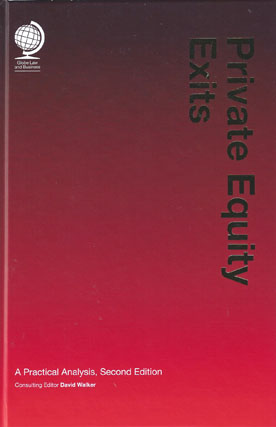We are now closed for the Christmas and New Year period, returning on Monday 5th January 2026. Orders placed during this time will be processed upon our return on 5th January.

Exits are the lifeblood of private equity: for private equity investors, at the top of their list of priorities when making an investment is an understanding of when and how they will realise it in due course.
The methods of exiting private equity investments have developed over the years, and particularly in the more challenging economic environment of recent times.
To the usual trade sales and initial public offerings (IPOs) have been added secondary, tertiary (and more) buy-outs, refinancings, partial sales, private equity house spin-outs and liquidations. In these uncertain times, private equity houses will continue to put a significant focus on what options might be available to them to realise their portfolio investments, being mindful of not just the economic risks, but also the legal, tax, regulatory and reputational issues at stake. Management teams are key to this process and their economic, commercial and personal priorities cannot be underestimated in what is a very complex environment of often conflicting aspirations.
This practical guide features contributions by leading specialists (including from Latham & Watkins, Linklaters, Macfarlanes and Ropes and Gray) on a range of topics linked to the exit of private equity investments. Topics featured include preparing for exits, vendor diligence, management issues, auction sales, partial exits, private equity house spin-outs, IPOs, refinancing, winding-up, tax and perspectives from Luxembourg, the US and views on the emerging markets.
Together, the contributors provide an invaluable guide to the legal, regulatory, tax and practical elements in play. Whether you are a lawyer in practice or in-house, this commercially focused new title will provide you with an invaluable all-round overview of private equity exits.